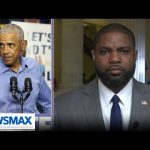The end of this latest government shutdown will not be a tidy reset — airlines and travelers are staring down a messy hangover that could stretch for weeks as canceled flights, understaffed control towers, and scrambled schedules are worked back into place. Industry officials and union leaders warn that even after funding is restored, the backlog of missed paychecks, staffing shortages and rescheduled itineraries will keep airport chaos alive well into the holiday season. Lawmakers who traded the normal functioning of the federal government for political theater left the public to pick up the bill.
Data already show tens of thousands of delays and thousands of cancellations piling up during the shutdown, and experts say those numbers won’t snap back overnight; rescheduling and rerouting tens of thousands of passengers is a logistical nightmare that requires time, money, and managers on the ground. Air traffic control absences and fatigue among remaining staff make a quick recovery unlikely, and flight-tracking services recorded sharp spikes in disruptions while the shutdown persisted. This is the predictable result of putting politics ahead of public safety and commerce.
Conservatives should be furious that essential services were used as bargaining chips, forcing controllers and TSA workers into impossible choices while private citizens and businesses suffered. Union leaders and transportation CEOs publicly pleaded for a clean funding bill, warning of “mass chaos” if the impasse continued — warnings that should have mattered more to the people responsible for governance. When public servants miss paychecks because political posturing won’t stop, blame lies squarely with the obstructionists who engineered the shutdown.
The hangover won’t be limited to air travel. Critical nutrition programs and data-gathering agencies stalled during the shutdown, leaving states and markets in the dark and families uncertain about benefits and budgets. The economic ripple effects of frozen federal operations extend from SNAP payments to the missing economic reports businesses rely on to plan, and the damage will be measured in lost trust and wasted resources. This is a stark reminder that governance is not optional and that stability matters more than grandstanding.
Meanwhile, President Trump’s recent defense of bringing in skilled foreign workers — saying the U.S. “doesn’t have certain talents” and that America “do have to bring in talent” for specialized jobs — ignited a firestorm on the right and highlighted a split between practical policy and populist rhetoric. The interview exchange with Laura Ingraham was blunt, and it quickly became a focal point for frustration among conservatives who believe in prioritizing domestic labor and limiting foreign-worker programs. That reaction speaks to a legitimate resentment on the right: voters expect promises about job protection to mean real prioritization of American hiring.
Critics from within the GOP—loud voices who helped propel recent political victories—rightfully accused the president of straying from an America First posture, and the backlash underscores how volatile the coalition is when core pledges appear compromised. This is not mere factionalism; it’s a warning sign that voters will punish leaders who seem to favor industry shortcuts or donor-driven policies over domestic opportunity. Elected officials who claim to stand for American labor must be held to that standard consistently, not only when it’s politically convenient.
There is room for sensible policy that defends American workers while recognizing genuine national-security and high-tech skill gaps, but the answer is training, apprenticeships, and enforcement against visa abuse — not reflexive outsourcing dressed up as pragmatism. The administration’s move to impose a steep fee on new H-1B applications reflected some effort to curb abuses, but rhetoric that suggests American workers are disposable will only inflame the very base that conservatives need to retain. Tough-minded conservatives should demand reform that raises wages, expands training, and clamps down on companies gaming the system.
Taken together, the travel hangover and the immigration dust-up are symptoms of a deeper problem: a governing class that mistakes managerial expediency and political compromise for leadership. Voters deserve steady government that keeps the skies open and a workforce strategy that puts Americans first without pandering to special interests. The coming weeks should be a test of whether leaders will take responsibility, fix the mess they made, and deliver concrete policies that restore competence and confidence.




